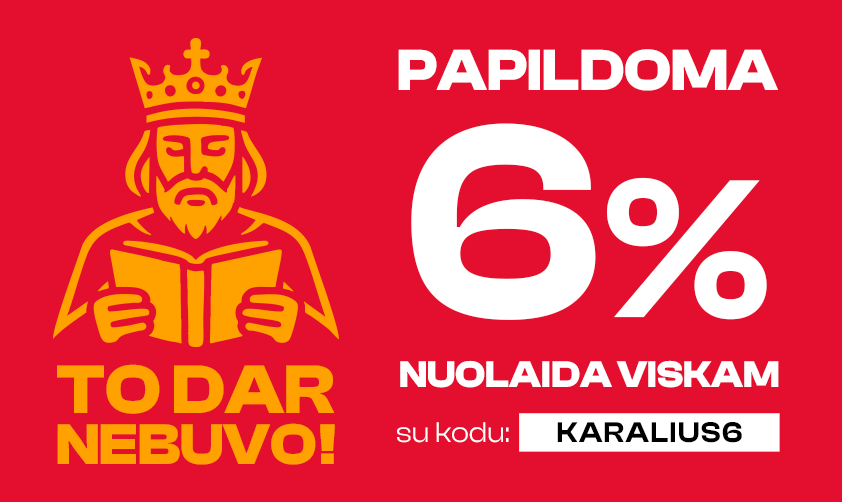
- Išsiųsime per 10–14 d.d.
- Autorius: Isaac Asimov
- Leidėjas: SPECTRA BOOKS
- Metai: 2004
- Puslapiai: 273
- ISBN-10: 0553294385
- ISBN-13: 9780553294385
- Formatas: 10.7 x 17.7 x 2.1 cm, minkšti viršeliai
- Kalba: Anglų
- Extra -15 % nuolaida šiai knygai su kodu: ENG15
Atsiliepimai
Aprašymas
This classic science fiction masterwork by Isaac Asimov weaves stories about robots, humanity, and the deep questions of existence into a novel of shocking intelligence and heart. "A must-read for science-fiction buffs and literature enjoyers alike."--The Guardian I, Robot, the first and most widely read book in Asimov's Robot series, forever changed the world's perception of artificial intelligence. Here are stories of robots gone mad, of mind-reading robots, and robots with a sense of humor. Of robot politicians, and robots who secretly run the world--all told with the dramatic blend of science fact and science fiction that has become Asimov's trademark. The Three Laws of Robotics:1) A robot may not injure a human being or, through inaction, allow a human being to come to harm.
2) A robot must obey orders given to it by human beings except where such orders would conflict with the First Law.
3) A robot must protect its own existence as long as such protection does not conflict with the First or Second Law. With these three, simple directives, Isaac Asimov formulated the laws governing robots' behavior. In I, Robot, Asimov chronicles the development of the robot from its primitive origins in the present to its ultimate perfection in the not-so-distant future--a future in which humanity itself may be rendered obsolete. "Tremendously exciting and entertaining . . . Asimov dramatizes an interesting question: How can we live with machines that, generation by generation, grow more intelligent than their creators and not eventually clash with our own invention?"--The Chicago Tribune
EXTRA 15 % nuolaida
Kupono kodas: ENG15
Akcija baigiasi už 1d.08:39:24
Nuolaidos kodas galioja perkant nuo 10 €. Nuolaidos nesumuojamos.

- Autorius: Isaac Asimov
- Leidėjas: SPECTRA BOOKS
- Metai: 2004
- Puslapiai: 273
- ISBN-10: 0553294385
- ISBN-13: 9780553294385
- Formatas: 10.7 x 17.7 x 2.1 cm, minkšti viršeliai
- Kalba: Anglų
1) A robot may not injure a human being or, through inaction, allow a human being to come to harm.
2) A robot must obey orders given to it by human beings except where such orders would conflict with the First Law.
3) A robot must protect its own existence as long as such protection does not conflict with the First or Second Law. With these three, simple directives, Isaac Asimov formulated the laws governing robots' behavior. In I, Robot, Asimov chronicles the development of the robot from its primitive origins in the present to its ultimate perfection in the not-so-distant future--a future in which humanity itself may be rendered obsolete. "Tremendously exciting and entertaining . . . Asimov dramatizes an interesting question: How can we live with machines that, generation by generation, grow more intelligent than their creators and not eventually clash with our own invention?"--The Chicago Tribune





Atsiliepimai